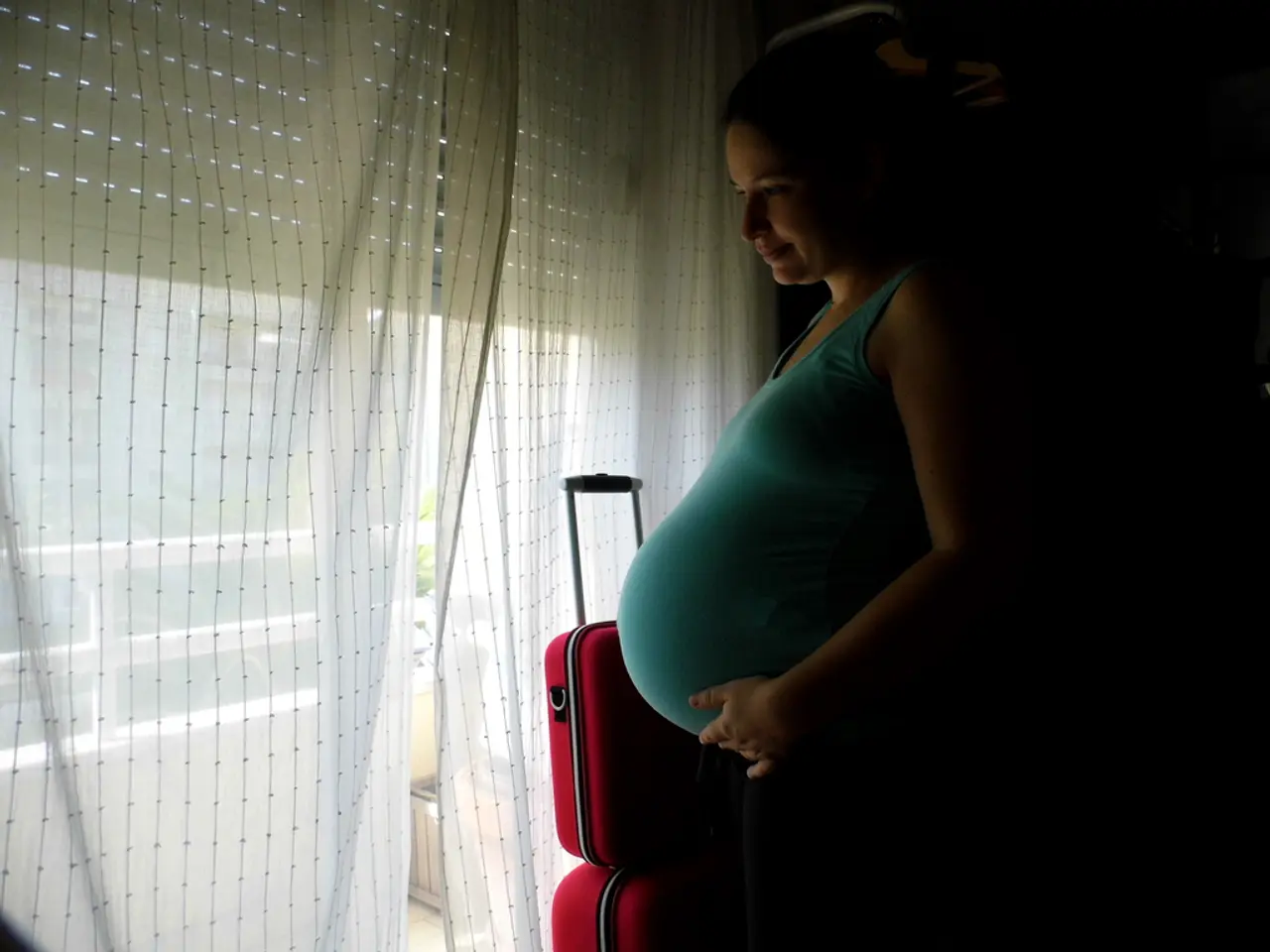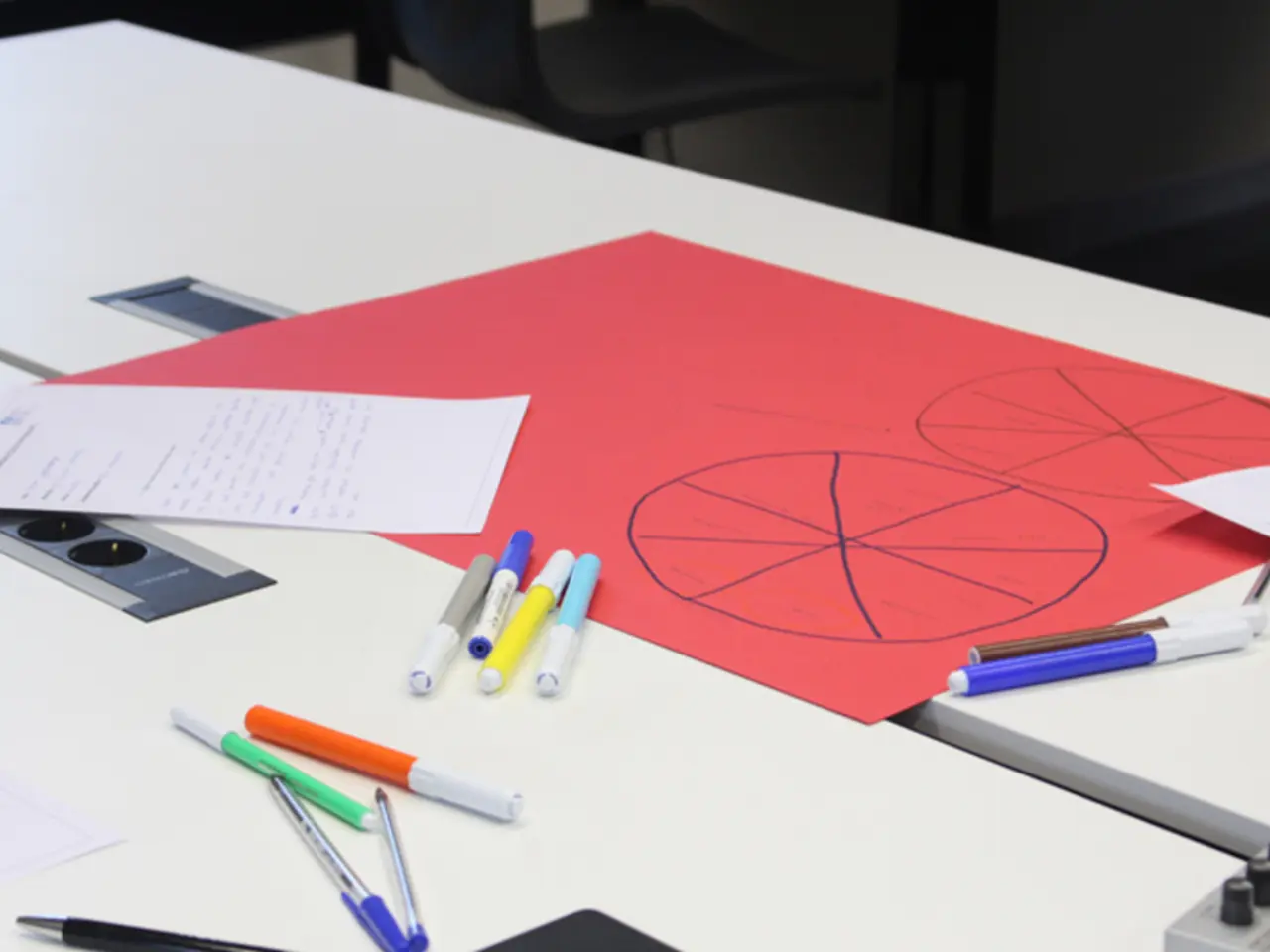Pains during the third trimester: Understanding origins and remedies
In the final stage of pregnancy, the third trimester, many women experience various pains and discomforts due to physiological and anatomical changes, as well as pregnancy-related complications. This article explores common sources of pain and discomfort, and strategies to alleviate them.
One of the most common complaints is back pain, caused primarily by hormonal changes, especially the increase in relaxin, which loosens ligaments and can strain back muscles. Posture changes due to the forward shift of the center of gravity as the uterus grows and weakening and separation of abdominal muscles (diastasis recti) reduce support for the spine. Stress and altered lifting techniques can worsen muscle strain and pain.
Abdominal pain can also be a concern during the third trimester. This can be due to the enlargement of the uterus causing stretching of ligaments and compression of abdominal organs, fetal movements and uterine contractions. Less common but serious causes include obstetric complications such as intrahepatic cholestasis (causing intense itching and sometimes abdominal pain), intra-amniotic infection (clinical chorioamnionitis), uterine rupture, and torsions of the uterus or adnexa.
Other common discomforts include swollen ankles from fluid retention, heartburn, and constipation. Heartburn is most common during the second and third trimesters due to hormonal changes and the effects of the growing uterus and fetus pressing on the stomach.
Alleviation strategies for these discomforts include exercise, such as prenatal yoga, swimming, and other gentle, pregnancy-safe exercises, which can strengthen muscles, improve posture, reduce back pain, and alleviate swelling. Maintaining good posture and using proper lifting techniques are also essential in reducing strain on the back.
Diet and hydration play a crucial role in managing discomforts. Eating a balanced diet rich in fiber, fruits, and vegetables helps manage constipation and heartburn. Staying well-hydrated also helps reduce swelling and improve digestion. Rest is also important, with taking breaks and adequate rest helping relieve muscle tension and overall discomfort.
Regular visits to healthcare providers allow for early detection of complications, such as cholestasis, infections, and for tailored advice for symptom management. If pain is severe, persistent, or accompanied by other symptoms like fever or jaundice, prompt medical evaluation is essential.
When experiencing severe or persistent abdominal pain, a woman should talk to her doctor as the pain could be due to an underlying condition, such as a urinary tract infection. Sore breasts are a common symptom during the third trimester due to hormonal changes preparing for breastfeeding.
Heartburn can be alleviated by lifestyle changes, such as avoiding trigger foods, eating smaller meals, wearing loose-fitting clothing, sitting in an upright position after meals, avoiding eating within 2-3 hours of going to bed, and sleeping with the head of the bed raised 6-8 inches off the floor. Over-the-counter or prescription medications, such as oral antacids, H2-receptor antagonists, and proton pump inhibitors, are safe for women to take during pregnancy to alleviate heartburn.
Pregnancy during the third trimester can cause pain and discomfort in various body parts. Swelling during pregnancy can be prevented or reduced by limiting time spent on feet and elevating feet when sitting. Sensations of pressure or fullness in the vagina are usually uncomfortable rather than painful and rarely require treatment, but any woman who develops severe vaginal discomfort or pain should talk to her doctor.
If a woman has concerns about her safety or that of the developing fetus, she should talk to her doctor as soon as possible. Lifestyle changes, such as physical therapy, chiropractic treatment, and the use of heating pads, may be recommended by a doctor to help alleviate pregnancy-related back or hip pain.
In summary, most common pains and discomforts during the third trimester arise from mechanical strain on the musculoskeletal system, hormonal effects, and physiological adaptations, which can often be alleviated through exercise, diet, posture management, rest, and medical care. Prompt medical attention is essential when experiencing severe pain or other concerning symptoms.
- During the third trimester, women may experience heartburn, a common complaint caused by hormonal changes and the growing uterus pressing on the stomach.
- Abdominal pain in the third trimester can be due to various causes, including fetal movements, uterine contractions, or underlying complications like cholestasis or uterine rupture.
- Sore breasts are a common symptom during the third trimester due to hormonal changes preparing for breastfeeding.
- Pregnancy-related back pain can be alleviated through exercise, maintaining good posture, and using proper lifting techniques.
- When experiencing severe or persistent abdominal pain, a woman should talk to her doctor, as the pain could be due to an underlying condition such as a urinary tract infection.




